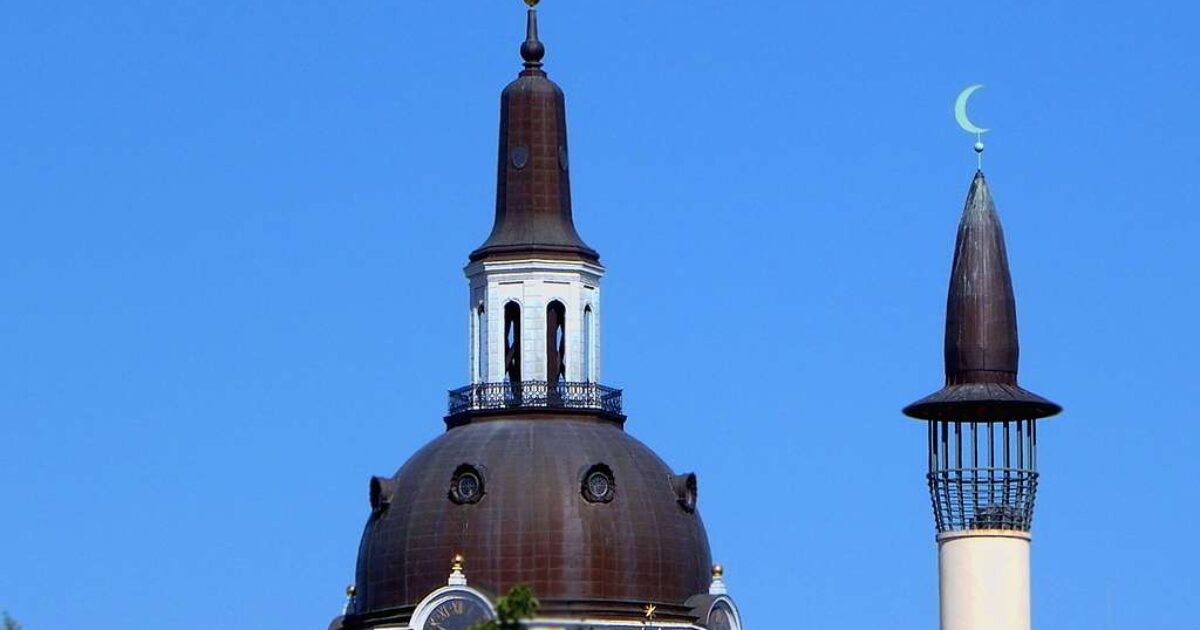 Once a land shaped by Viking lore and later defined by its austere Protestant ethos, Sweden is now undergoing a dramatic cultural shift, with the number of mosques soaring by 4,200% in less than 25 years—a transformation few could have imagined just a generation ago.
Once a land shaped by Viking lore and later defined by its austere Protestant ethos, Sweden is now undergoing a dramatic cultural shift, with the number of mosques soaring by 4,200% in less than 25 years—a transformation few could have imagined just a generation ago.
It’s worth noting that the definition of what constitutes a mosque remains unclear—implying the true number could be considerably higher than reported, according to a report by the Swedish news portal Samnytt.
The staggering rise of Muslim houses of worship in Sweden reflects not only shifting religious dynamics but also significant demographic changes. Once a predominantly Lutheran nation, Sweden now sees fewer than half of its population identifying with the Swedish Lutheran Church.
As churches close their doors and the native Swedish birthrate continues to decline, Sweden has seen the number of mosques rise precipitously, from just seven in 2000 to around 300 by 2025.
In parallel with the surge in mosques, Sweden’s Muslim population is growing rapidly, with Pew Research projections indicating that it could surpass 30% of the country’s total population by 2050.
The rapid construction of mosques has prompted concern and sparked debate, largely due to the opaque nature of their funding. Investigations by outlets such as Samnytt have revealed that nations like Saudi Arabia, Iran, Qatar, and Turkey have bankrolled numerous mosque projects across Sweden. One report estimates that one in four mosques has received Saudi funding alone.
To Karin Wanngård, Stockholm’s socialist finance mayor, the dramatic rise in mosques across Sweden is no cause for concern. In fact, she thinks Sweden ought to construct even more mosques.“We have countless churches and far fewer mosques. Of course, we need to build more so people can practice their religion,” Wanngård claimed.
Yet more discerning critics quite rightly warn this religious infrastructure could serve as a conduit for foreign influence.
Swedish security services and civil agencies have repeatedly warned that some mosques may serve as platforms for anti-Western rhetoric or instruments of political influence by foreign powers. Despite these warnings, there is no official registry of mosques or their sources of funding, leaving significant gaps in oversight.
Two major mosque projects in particular have drawn public scrutiny.
In Helsingborg, construction is underway for what’s being dubbed “Scandinavia’s largest mosque,” already funded to the tune of 68 million kronor (6.4 million dollars) via social media and private donors, both domestic and international.
Stockholm’s Skärholmen neighborhood is also preparing to host what could become the largest mosque in Northern Europe. The project is being built by Turkish company EMUG, which has ties to the Islamist Milli Görüs movement—an organization widely criticized for anti-democratic views and anti-Semitism.
Right-of-center politicians point to cities like Malmö as a stark preview of Sweden’s deeply troubling, civilization-altering demographic trajectory.
In Malmö, ethnic Swedes are already a minority in the school system, and the city remains deeply affected by violent crime—most of it linked to migrant gangs. Critics argue that ethnic enclaves have created de facto no-go zones, where police presence is limited and many women report feeling unsafe.
The mosque boom has also reignited debates over national security and integration. The Gothenburg mosque, backed by Saudi funds, has come under fire for promoting misogynistic content. Even more troubling, the Imam Ali mosque in Stockholm has hosted speakers who advocate martyrdom.
National-conservative politicians have seized on the issue. Jimmie Åkesson, leader of the Sweden Democrats, has called for mosques that promote anti-Swedish or anti-democratic messages to be swiftly shut down.
“It is not a right to come to our country and build monuments to a foreign and imperialist ideology,” he said during a party speech. Åkesson advocates for the demolition of mosques found spreading hate or misinformation.
Sweden’s dramatic shift in the religious landscape, underscored by a mushrooming mosque presence and increasing foreign influence, has become a flashpoint in national debates over identity, integration, and security.
As Western European countries like Sweden, the United Kingdom, and France grapple with these changes, increasingly pressing questions remain about how to balance religious freedom with societal cohesion— and which groups should have a hand in shaping the future of these nations.















